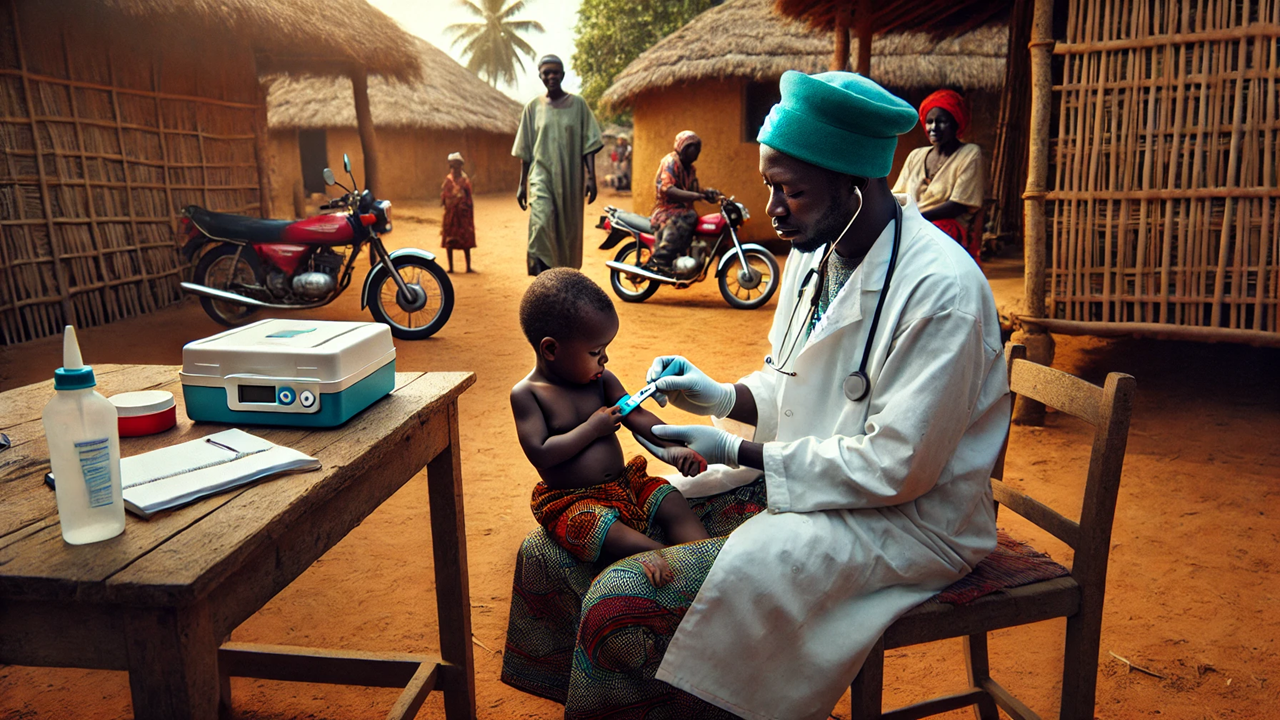Africa’s New Plan to End Malaria by 2030: Uniting Science, Funding, and Local Action
A new World Health Organization report, “Tackling Malaria in Countries Hardest Hit by the Disease,” outlines Africa’s strategy to combat malaria with bold goals for 2030. Released following a ministerial conference in Yaoundé, Cameroon, the report highlights renewed commitments to funding, community-led actions, health systems integration, and multi-sector partnerships to finally bring malaria rates to zero across high-burden countries.

A new report titled "Tackling Malaria in Countries Hardest Hit by the Disease" from the World Health Organization (WHO) underscored Africa's fresh and intensified fight against malaria. The report emerged from a pivotal ministerial conference held in Yaoundé, Cameroon, bringing together health ministers, global health leaders, and stakeholders committed to an ambitious goal: eradicating malaria across high-burden African countries by 2030.
Renewed Focus on Political Will and Accountability
The Yaoundé Declaration, signed by health ministers from Africa’s High Burden to High Impact (HBHI) countries, lays out a path to tackle malaria with a multifaceted approach. The report emphasizes renewed political commitment as the foundation for success, pushing leaders to make malaria control a national priority. The Declaration encourages each participating country to prioritize malaria control within health policies, secure stable funding, and build accountability frameworks to track their progress against malaria. According to Dr. Jerome Salomon of the WHO, this robust accountability mechanism will allow African nations to hold themselves and each other responsible for driving tangible change in malaria incidence and mortality rates.
Leveraging Data for Targeted Actions
The report underlines the power of data to drive targeted actions and policy decisions. Health ministers pledged to develop resilient data systems that would allow malaria interventions to be tailored to the needs of each region. By investing in reliable health information networks, African countries can better track clinical outcomes, treatment efficacy, and the impact of interventions. This data-driven approach is essential, especially given malaria’s varied transmission patterns and the specific vulnerabilities of regions and populations across the continent.
Health Systems and Community Engagement at the Core
Strengthening national health systems is another priority identified in the WHO report. Many malaria-endemic countries are committing to expanding access to high-quality malaria services—from diagnosis to treatment and prevention—by incorporating malaria interventions within primary health care and aligning efforts with the broader goal of universal health coverage (UHC). According to WHO Regional Director Dr. Matshidiso Moeti, integrated health systems ensure not only that malaria control becomes sustainable but also that African nations are better equipped to face other health threats in the future.
A key takeaway from the Yaoundé conference was the importance of involving communities in malaria control strategies. Recognizing that successful public health initiatives often hinge on local support, the report emphasizes empowering communities to participate in malaria prevention, from distributing bed nets to supporting vaccination efforts. Community health workers, who have been essential in recent vaccination campaigns, are central to these initiatives, helping to ensure that rural and vulnerable populations receive timely care and information.
Scaling Up New Technologies and Vaccinations
The report spotlights promising new malaria prevention tools, including next-generation bed nets and vaccines that target malaria’s deadliest forms. WHO recommended the RTS, S vaccine in 2021 and, more recently, the R21 vaccine in 2023. Both vaccines are expected to play significant roles in reducing child mortality and hospitalizations related to severe malaria. The WHO report emphasizes the importance of deploying these tools in combination with other preventive measures, such as seasonal malaria chemoprevention and indoor residual spraying, to maximize protection.
One of the notable points from the conference was the importance of a stable supply chain for vaccines and diagnostics. Building local manufacturing capacities was proposed as a means to ensure a continuous supply of malaria prevention tools, reduce dependency on external suppliers, and support the local economy—a crucial step toward Africa’s long-term health security.
Building Collaborative Partnerships for Sustainable Funding
Addressing the funding gap remains a significant challenge in the fight against malaria. In 2022, only $4.1 billion of the $7.8 billion needed for global malaria efforts was secured, reflecting a substantial shortfall that hampers malaria control efforts. The report calls for collaborative partnerships involving international donors, regional organizations, and the private sector to support malaria research, development, and resource mobilization. Innovative financing mechanisms like dedicated malaria funds were highlighted as potential solutions for sustainable, long-term financing.
A Vision for a Malaria-Free Future
With its focus on political commitment, data-driven strategies, integrated health systems, and enhanced funding, the WHO's Tackling Malaria in Countries Hardest Hit by the Disease report sets a clear path forward. The Yaoundé Declaration reflects a collective resolve to end malaria across Africa by 2030, ensuring that no one dies from this preventable and treatable disease. By working together and empowering communities, Africa’s leaders, health experts, and local stakeholders aim to make a malaria-free continent a reality within the next decade.
- FIRST PUBLISHED IN:
- Devdiscourse










